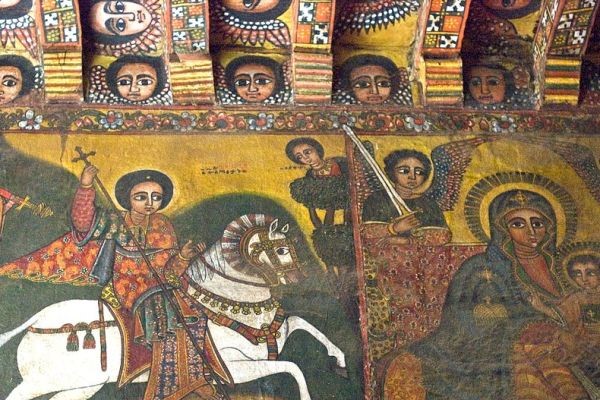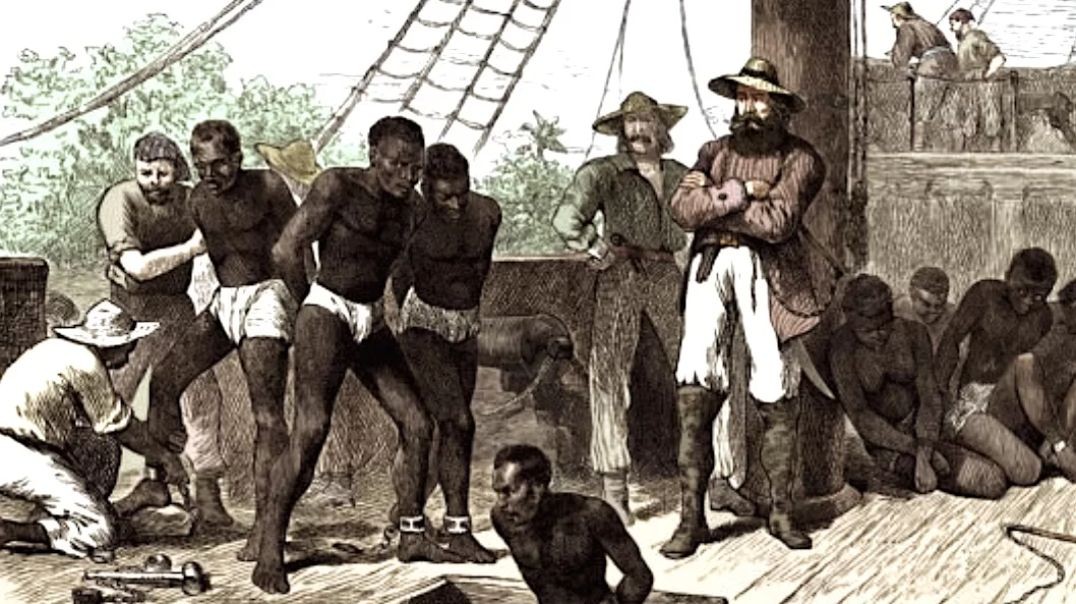Emperor Zara Yaqob of Ethiopia: A 10,000-Word Exploration
Emperor Zara Yaqob, one of Ethiopia’s most influential and revered rulers, reigned from 1434 to 1468. His era marked a golden age of Ethiopian sovereignty, religious consolidation, intellectual flourishing, and cultural renaissance. This in-depth article provides a comprehensive examination of Zara Yaqob's life, reign, policies, religious reforms, and the cultural legacy he left behind in Ethiopia. Through his visionary leadership, he navigated the complex sociopolitical dynamics of the medieval Ethiopian empire, solidified the Ethiopian Orthodox Tewahedo Church, and protected the empire from foreign invasions. Zara Yaqob’s reign is remembered as a pivotal period that laid the foundations for Ethiopia’s distinctive cultural and religious identity.
1. Early Life and Ascension to the Throne
Early Background and Lineage
Zara Yaqob was born in 1399 in Debre Berhan, into the Solomonic Dynasty, a ruling family that claimed descent from the biblical King Solomon and the Queen of Sheba. His birth name was Kwestantinos, and he was born into a period of political fragmentation within the Ethiopian Empire. At a young age, Zara Yaqob became deeply devoted to religion and was mentored by influential clergy members who instilled in him a love for theological discourse, which later influenced his role as a reformer of the Ethiopian Orthodox Church.
Path to Power
In 1434, following a period of internal power struggles and succession disputes, Zara Yaqob emerged as the emperor. His coronation symbolized a new beginning, and Zara Yaqob immediately began instituting a series of policies aimed at restoring order and reinforcing imperial authority across the vast Ethiopian territories. His reign was characterized by a combination of forceful diplomacy, religious reformation, and consolidation of imperial authority.
2. Strengthening of the Ethiopian Orthodox Church
Theological Background
Zara Yaqob’s reign coincided with a period of religious conflict, doctrinal disputes, and fragmentation. One of his significant achievements was addressing these theological challenges to bring unity within the Ethiopian Orthodox Tewahedo Church. At the time, there were growing tensions between various monastic orders and interpretations of the Christian faith within Ethiopia. Zara Yaqob was particularly troubled by the spread of non-canonical beliefs and practices.
Establishment of Monastic Orders and Religious Texts
To promote religious orthodoxy, Zara Yaqob established a monastic order called the House of Debre Berhan, which became the intellectual center for Ethiopian Christianity. He sponsored scholars, theologians, and translators who produced religious texts that shaped Ethiopian Christianity for generations. Zara Yaqob’s sponsorship extended to the translation of various religious texts, such as the Psalms, gospels, and church canons, into Ge'ez, the liturgical language of Ethiopia, ensuring wider accessibility for his subjects.
Council of Debre Mitmaq
In 1450, Zara Yaqob convened a church council at Debre Mitmaq to address the proliferation of heretical sects and non-canonical beliefs. This council served as a platform for defining orthodoxy and establishing the theological framework that would govern Ethiopian Christianity. Through this council, Zara Yaqob reinforced the belief in the Tewahedo (unified) nature of Christ, rejecting other doctrines that were emerging in neighboring regions. The council’s decrees became cornerstones of the Ethiopian Orthodox Church, strengthening the cohesion and unity of Ethiopian Christianity.
3. Religious Reforms and State Ideology
Role as a Theocratic Leader
Zara Yaqob’s vision of an Ethiopian state was deeply intertwined with his religious convictions. He believed in the concept of a theocratic state where the emperor was both a political and spiritual leader. This idea of "divine kingship" enabled him to legitimize his authority over his subjects and reinforced the importance of religion in all aspects of Ethiopian life.
Persecution of Pagan and Non-Christian Practices
Determined to maintain the orthodoxy of his realm, Zara Yaqob actively pursued policies that aimed to eradicate paganism and enforce Christian practices. He issued a decree forbidding the worship of local deities and the practice of traditional African religions within his empire. This sometimes led to harsh persecution of those who refused to convert, as Zara Yaqob was convinced that religious unity was essential to the strength of the Ethiopian state. Through such efforts, he succeeded in Christianizing much of Ethiopia’s diverse population.
Creation of New Religious Festivities
In an attempt to unify the Ethiopian people through religious observance, Zara Yaqob introduced the holiday of "Timkat," or the Ethiopian Epiphany, which celebrated the baptism of Jesus in the Jordan River. Timkat became a significant annual festival that unified Ethiopians across social classes and ethnic backgrounds, reinforcing a sense of collective identity.
4. Administration and Bureaucratic Reforms
Centralization of Power
Zara Yaqob initiated a series of reforms that centralized authority within the monarchy. He curbed the power of local governors and regional lords by instituting a more centralized bureaucracy that was directly accountable to the throne. This included the creation of provincial administrators who reported to the emperor, which helped prevent rebellion and increase the reach of imperial control.
Legal Reforms and the Fetha Nagast
One of Zara Yaqob's enduring legacies is his contribution to the Ethiopian legal system through the promulgation of the "Fetha Nagast" (Law of the Kings). This code of law, based on Christian principles, combined religious doctrine with civil law and established guidelines for governance, family law, property rights, and criminal justice. The Fetha Nagast remained a foundational legal text in Ethiopia for centuries, influencing Ethiopian jurisprudence and legal traditions.
Taxation and Economic Policies
Zara Yaqob restructured the taxation system to support the empire’s economic base and ensure resources for his religious and administrative projects. He imposed a more consistent tax structure that alleviated the financial burdens of the peasantry while ensuring that the nobility contributed a fair share to the empire’s treasury. These economic reforms created a stable revenue stream that funded the construction of religious sites, roads, and other infrastructure projects.
5. Foreign Relations and Defense Policies
Diplomatic Relations with Neighboring States
During Zara Yaqob's reign, Ethiopia maintained diplomatic relationships with neighboring kingdoms, particularly in the Horn of Africa and the Middle East. His diplomatic policy was primarily aimed at securing trade routes, forging alliances, and defending the empire against external threats. Zara Yaqob was known to send emissaries to various Islamic and Christian states, forging alliances that helped Ethiopia maintain its sovereignty.
Relations with the Mamluk Sultanate
One of the most significant foreign relationships during Zara Yaqob's reign was with the Mamluk Sultanate of Egypt. The relationship was complex and sometimes antagonistic, especially because of the Mamluk’s control over the headwaters of the Nile. Zara Yaqob utilized his religious influence to appeal to the Coptic Church in Egypt, emphasizing the shared Christian heritage and seeking to ensure the security of Ethiopian pilgrims and travelers in the Middle East.
Defense Strategies Against External Threats
To protect his empire from invasions, particularly from Muslim sultanates in the region, Zara Yaqob fortified his borders and organized a well-trained standing army. He adopted new military strategies and utilized the mountainous terrain of Ethiopia to his advantage, deterring potential invasions and ensuring that Ethiopia remained largely uncolonized.
6. Cultural and Intellectual Legacy
Support for Art, Literature, and Architecture
Zara Yaqob’s reign marked a golden age for Ethiopian art, literature, and architecture. He sponsored the creation of illuminated manuscripts, which depicted Christian stories and Ethiopian heritage. His patronage of the arts extended to the construction of churches, monasteries, and religious schools, where students were trained in theology, art, and literature. Many of these religious sites remain significant cultural landmarks in Ethiopia.
Contribution to Ethiopian Literature and Philosophy
Under Zara Yaqob's patronage, Ethiopian literature flourished. His era produced significant theological and philosophical works that are still regarded as central to Ethiopian intellectual history. One of the most notable texts attributed to his influence is the "Metsahafe Haimanot," a book that delves into Christian ethics, theology, and philosophical reflections on life and spirituality.
Influence on Ethiopian Identity and National Pride
Through his cultural and religious contributions, Zara Yaqob helped foster a sense of Ethiopian identity and national pride. By promoting Christianity as a unifying force, he created a shared religious and cultural identity that transcended Ethiopia's diverse ethnic groups. This legacy of unity and resilience helped fortify Ethiopia's identity as a bastion of independence in Africa, particularly as it resisted colonialism in the centuries that followed.
7. Zara Yaqob’s Final Years and Succession
Challenges in the Later Years of His Reign
In his later years, Zara Yaqob faced challenges, both from within and outside his empire. The pressures of maintaining a vast and diverse kingdom, combined with his strict enforcement of religious orthodoxy, led to internal discontent. Despite these difficulties, Zara Yaqob remained committed to his ideals until the end of his life.
Succession and Legacy
After Zara Yaqob’s death in 1468, his son Baeda Maryam I ascended the throne. Although Baeda Maryam attempted to continue his father's policies, he struggled to replicate Zara Yaqob's success in maintaining centralized control. Nevertheless, Zara Yaqob’s legacy as a visionary ruler, a devout Christian, and a reformer of Ethiopian society persisted long after his death. His contributions to Ethiopian governance, religion, and culture left an indelible mark on the nation, and his influence can still be seen in Ethiopian society today.
Conclusion
Emperor Zara Yaqob’s reign was a transformative period in Ethiopian history, marked by political consolidation, religious reform, and cultural renaissance. His commitment to Christian orthodoxy, centralization of power, and support for the arts laid the foundation for a unified Ethiopian identity. Through his achievements, Zara Yaqob established Ethiopia as a prominent Christian kingdom and fortified its position in a region often fraught with religious and political strife. His influence continues to resonate in Ethiopia’s religious, cultural, and political spheres, making him one of the most celebrated figures in Ethiopian history.








